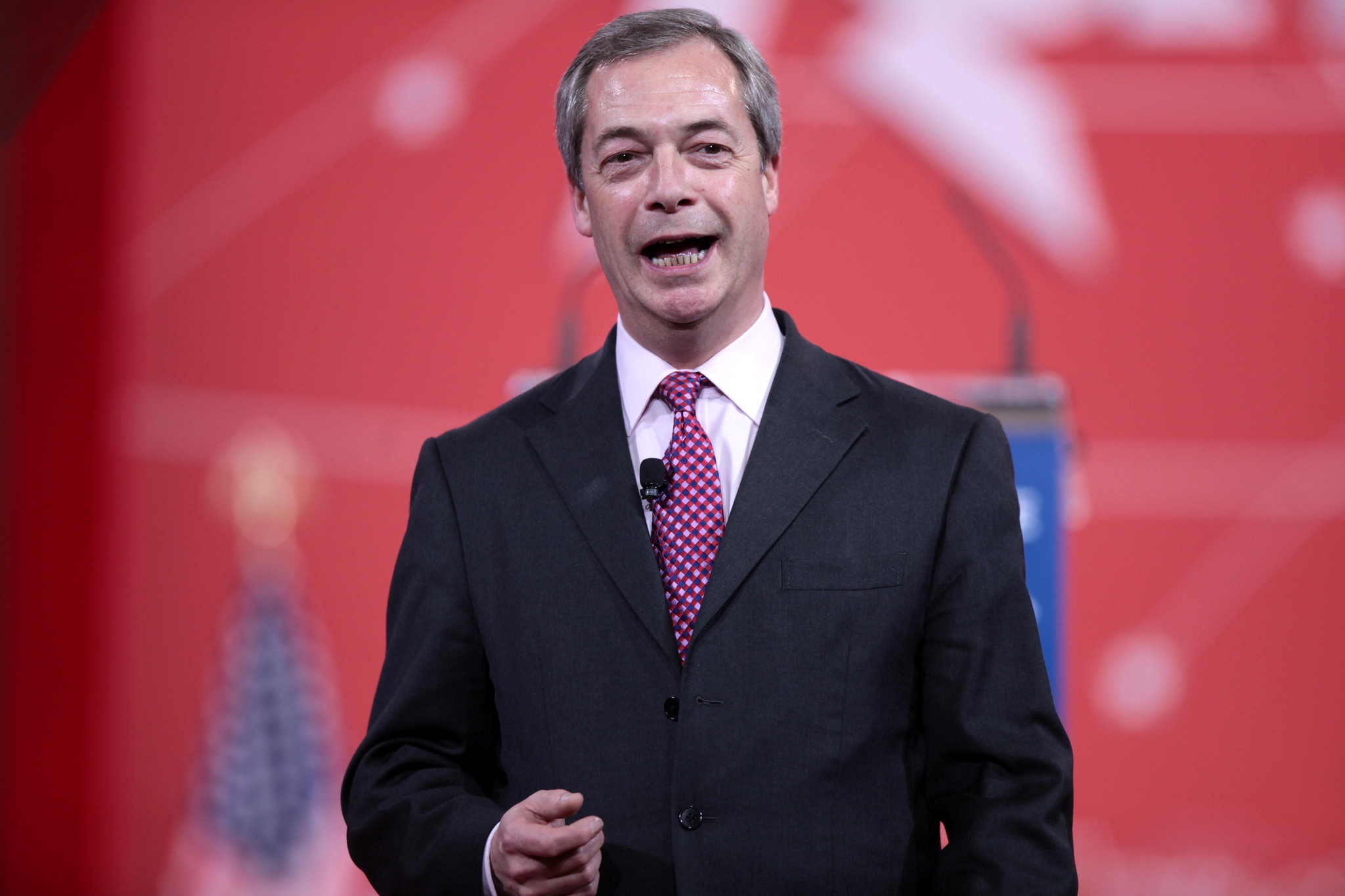
This year’s featured speakers included familiar right-wing figures like Brexit firebrand Nigel Farage, British politician Suella Braverman, controversial French author and presidential candidate Éric Zemmour and Hungarian Prime Minister Victor Orbán. (File Photo: Gage Skidmore/Flickr, CC BY-SA 2.0)
National Conservatism conferences, one of the main meeting grounds for the global radical right, rarely attract much attention. If not for the decision of a local mayor, the same neglect would have befallen this year’s event in Brussels.
But the mayor’s decision to shut down the conference on the grounds of “public safety” earned NatCon, as it’s known colloquially, headlines around the world.
Although the decision was quickly overturned and the conference continued the next day, the damage was done. Cancelling a meeting of radical right-wing activists who rail against “cancel culture” qualifies as a devastating self-inflicted wound for those seeking to counter the spread and influence of radical right ideas.
Radical right meeting ground
NatCon is part of a broader effort to build a transnationally connected movement against liberal globalization.
This year’s featured speakers included familiar right-wing figures like Brexit firebrand Nigel Farage, British politician Suella Braverman, controversial French author and presidential candidate Éric Zemmour and Hungarian Prime Minister Victor Orbán.
The meeting was barely underway when the police arrived to shut it down. While the official reason was “public security,” Emil Kir, the mayor of the Brussels district where the conference was being held, added a list of other justifications. They included NatCon’s “ethically conservative” vision, its “hostility to the legalisation of abortion, same-sex unions, etc.,” its focus on the defence of “national sovereignty” and its “Eurosceptic” attitude.
This, combined with his observation that some of the speakers “are reputed to be traditionalists,” led him to declare that “the far right is not welcome.”
Far from silencing the radical right, we believe setting the police on a meeting of former and present politicians — however objectionable and offensive their opinions are to many people — will only make them more vocal and more convinced about the righteousness of their mission.
Their supporters, too, are likely to find the police action a step too far, which may in turn have consequences at the ballot box. In this sense, the Brussels mayor may have handed the radical right a gift.
Free speech as a rallying cry
The radical right has made free speech one of its battle cries, and the effort to “cancel” the conference confirmed its accusations that liberal free speech is limited only to those who support liberal positions.
In the words of Frank Furedi, one of the conference’s organizers:
“The city of Brussels is occupied by forces hostile to free speech and democracy. Tragically and shamefully, it has become apparent that the political establishment in Brussels is actively collaborating with left-wing extremists to prevent the free expression of political ideas and opinions in the city.”
The fact that the closure happened in Brussels — the European Union’s capital and a bane to the radical right — is an added bonus. The radical right regards the EU as a prime agent of the suppression not only of free speech, but also of national identities and sovereignty.
For powerful politicians like Orbán, who addressed NatCon on the second day of the conference, the EU epitomizes the abusive power of a new global elite dedicated to exporting liberal values and in the process destroying traditional cultures and differences.
“I guess they couldn’t take free speech any longer,” Orbán said on X, adding the hashtags “#noMigration, #noGender, #noWar.”
Radical right goes global
Some might agree with the Brussels mayor that censorship of such unsavoury viewpoints is legitimate and necessary.
The analogy is frequently made to 1930s Germany, suggesting that if the Weimar government had suppressed the Nazi movement, the Holocaust might have been avoided. Even if historically correct, which is debatable, it is highly doubtful that such a strategy would succeed now.
Today’s radical right is global. Its ideas cannot be suppressed by cancelling meetings. Those ideas circulate through digital media and have supporters around the world. They’re no longer exclusive property of fringe movements; they’re now shared by powerful parties and governments.
In fact, many of the NatCon attendees moved on directly to the much bigger stage of CPAC Hungary, the largest international gathering of radical conservatives. Again, prominent speakers like Orbán, Geert Wilders of the Dutch Party for Freedom, Santiago Absacal of the Spanish Vox party and Tom Van Grieken of the Flemish Vlaams Belang were set to express similar opinions to those heard at NatCon Brussels.
Silencing doesn’t work
For those opposed to the ideas circulating at NatCon and CPAC, the debacle in Brussels contains one lesson: trying to silence the radical right isn’t the way forward. Not only is it likely to backfire, it will probably galvanize the radical right.
As one of our contacts at NatCon confessed, many are glad that the police intervened, not only because it exposed the thinking of those in power, but also because it gave conference attendees a sense of mission and encouragement to keep fighting.
The challenge for those of us who oppose these ideas is to demonstrate the same courage. Rather than censoring, we must dare to counter the radical right through rational arguments and political convictions.![]()
Rita Abrahamsen, Professor of International Politics, L’Université d’Ottawa/University of Ottawa and Michael Williams, Professor of International Politics, L’Université d’Ottawa/University of Ottawa
This article is republished from The Conversation under a Creative Commons license. Read the original article.





















